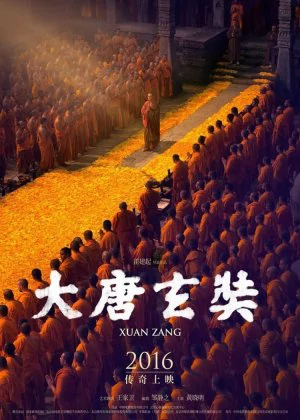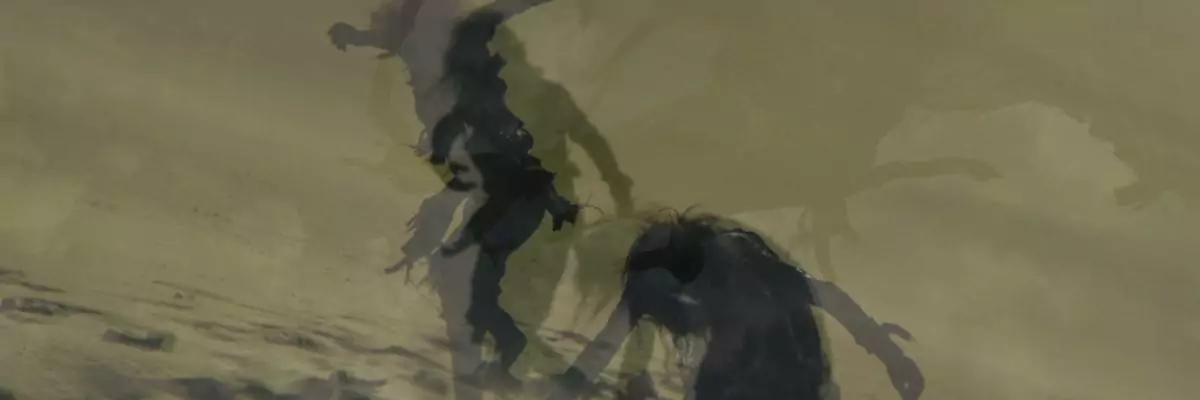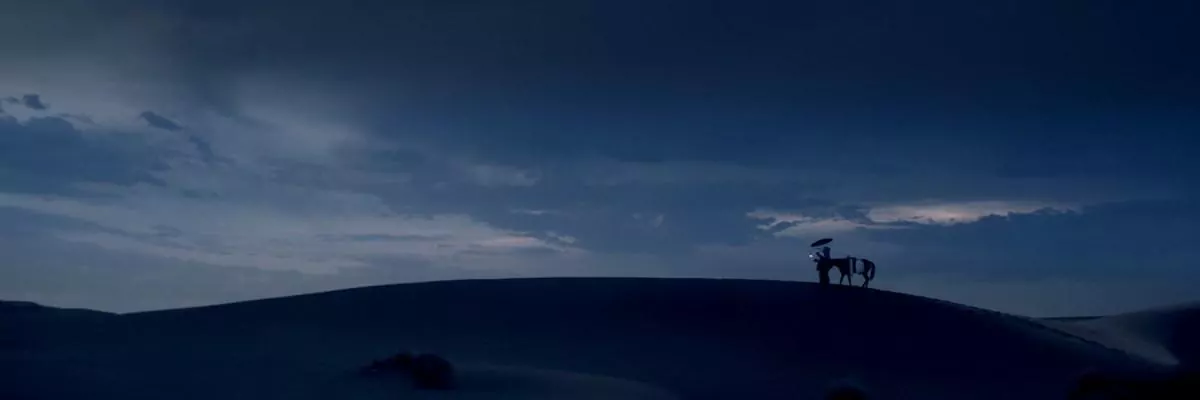Xuan Zang

It's quite rare to catch a new Jianqi Huo film this close to its original release, so when I got the opportunity to watch Xuan Zang [Da Tang Xuan Zang] I immediately jumped at it. Jianqi Huo is somewhat of a personal favorite and while his films usually don't look all that attractive on paper, he has an excellent track record of changing my mind once I've seen them. Xuan Zang isn't any different. While the long trek of a Buddhist monk didn't immediately appeal to me, the film itself convinced me otherwise.

The name Xuan Zang may not immediately ring a bell, but he's quite the famous historical figure in China. If you're familiar with Hong Kong cinema (or classic Chinese literature for that matter) you're sure to have heard of Journey to the West. As it turns out, Xuan Zang's trek to India is what inspired the original novel (and thus its countless adaptations). Don't expect a fantasy epic though, Xuan Zang's journey is more religious in nature, making this a more timid and relaxing film compared to the more outrageous Journey to the West adaptations.
Jianqi Huo is a good fit for directing Zang's biography. He has a knack for serving Chinese culture in such a way that it appeals to both local and oversees audiences. It shouldn't come as a surprise then that Huo's film was selected to represent China in this year's foreign film Oscar competition. Bear in mind though that some affinity with Buddhism is welcomed when watching this film. While the Buddhist influences aren't too overbearing, there are parts that touch on very particular subjects of the religion. Even so, as someone with little passion for religion, it never really bothered me.
The film follows Xuan Zang on his big adventure from China to India. His motivation? Finding the original Buddhist scriptures and cross-checking them for translation errors and omissions. Zang suspects the Chinese teachings are insufficient and sets out to clear things up by visiting the very source of his religion. But the road ahead is long and challenging and Chinese citizens aren't even allowed to travel West. That doesn't stop him though, even when he's faced with seemingly unbearable hardships.

Jianqi Huo has a special talent for framing nature in all its glory and Xuan Zang's journey gives him all the material he needs. While Zang crosses mountains, deserts and forests Huo finds ample opportunities to showcase his trademark lavish shots. He couldn't fully escape China's seemingly unquenchable thirst for shoddy CG though, but those moments are few and far between and at least the CG is functional (reinstating the old temple in its former glory and bringing rain to the desert). Overall it's a gorgeous-looking film.
The soundtrack too is up to Huo's usual standard. That means traditional-sounding Chinese music intertwined with ethereal string ambient. It's a beautiful combination and a good match for this type of film. There are a few moments where it felt like Huo was actually pushing it a little, crossing from beauty straight into kitsch, but on the whole the film provides a very pleasant, gracious and soothing audiovisual experience.
While there is a rather large cast, the film rests solemnly on the shoulders of Xiaoming Huang (playing Xuan Zang). Huang fares well as a devoted Buddhist monk, keeping his calm posture even in the most dire of circumstances. The rest of the cast is somewhat fleeting, mostly people Zang meets on his trip to India. It's not that the secondary cast is disappointing, there are notable performances from Jiayue Lou and Winston Chao, but they simply lack the screen time to make much of their parts.

Xuan Zang isn't a very contentious biopic. Xuan Zang is portrayed as a near saint, a venerable monk who touches the hearts of everyone he encounters. Zang's only true challenge comes in the form of nature's hardships, but even those are quickly conquered (apart from one rough passage in the desert). Don't expect a typical rise and fall structure or a voyage filled with setbacks. While Zang's undertaking is handled with the proper respect, Huo avoids almost all negativity, opting for a much more uplifting film.
The first hour is probably the strongest. When a little over halfway Zang finally reaches his destination in India the film spends more time digging into Buddhism itself, compared to the more road movie-like structure of the first part. It's not a showstopper and there's still plenty of beauty present in the second half, but it's something non-religious people should take into account. That said, I thoroughly enjoyed Zang's trip, not in the least because of Huo's skilful presentation.